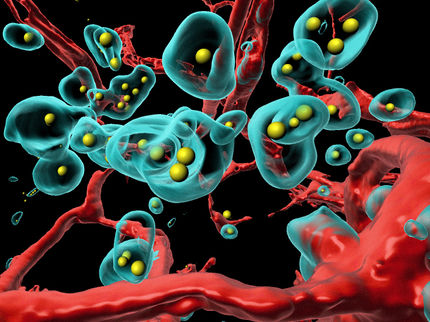Nano-capsules show potential for more potent chemoprevention
Advertisement
Researchers at the Winship cancer Institute of Emory University have discovered a more effective drug delivery system using nanotechnology that could one day significantly affect cancer prevention.
The study, published in Cancer Prevention Research, a journal of the American Association for Cancer Research, involved the use of microscopic amounts of the naturally occurring antioxidant, luteolin, that were encapsulated in a water-soluble polymer. When injected into mice the nano-luteolin inhibited growth of lung cancer and head and neck cancer cells.
"Our results suggest that nanoparticle delivery of naturally occurring dietary agents like luteolin has many advantages," says senior study author Dong Moon Shin, MD, professor of hematology and medical oncology at Emory University School of Medicine and associate director of academic development at Winship Cancer Institute. "By using a high concentration of luteolin in the blood, we were better able to inhibit the growth of cancer cells."
Luteolin is known for its anti-inflammatory and anti-cancer effects. It is naturally found in green vegetables such as broccoli, celery and artichokes, however, Shin says large quantities would need to be consumed to be effective. By concentrating the compound into a nanoparticle and making it easy to dissolve in water, researchers conclude nano-luteolin has immense potential for future human studies of chemoprevention.
Chemoprevention is currently used to help stop the recurrence of cancer in patients and reduce the risk of cancer in others.
Most read news
Organizations
Other news from the department science

Get the life science industry in your inbox
By submitting this form you agree that LUMITOS AG will send you the newsletter(s) selected above by email. Your data will not be passed on to third parties. Your data will be stored and processed in accordance with our data protection regulations. LUMITOS may contact you by email for the purpose of advertising or market and opinion surveys. You can revoke your consent at any time without giving reasons to LUMITOS AG, Ernst-Augustin-Str. 2, 12489 Berlin, Germany or by e-mail at revoke@lumitos.com with effect for the future. In addition, each email contains a link to unsubscribe from the corresponding newsletter.























































